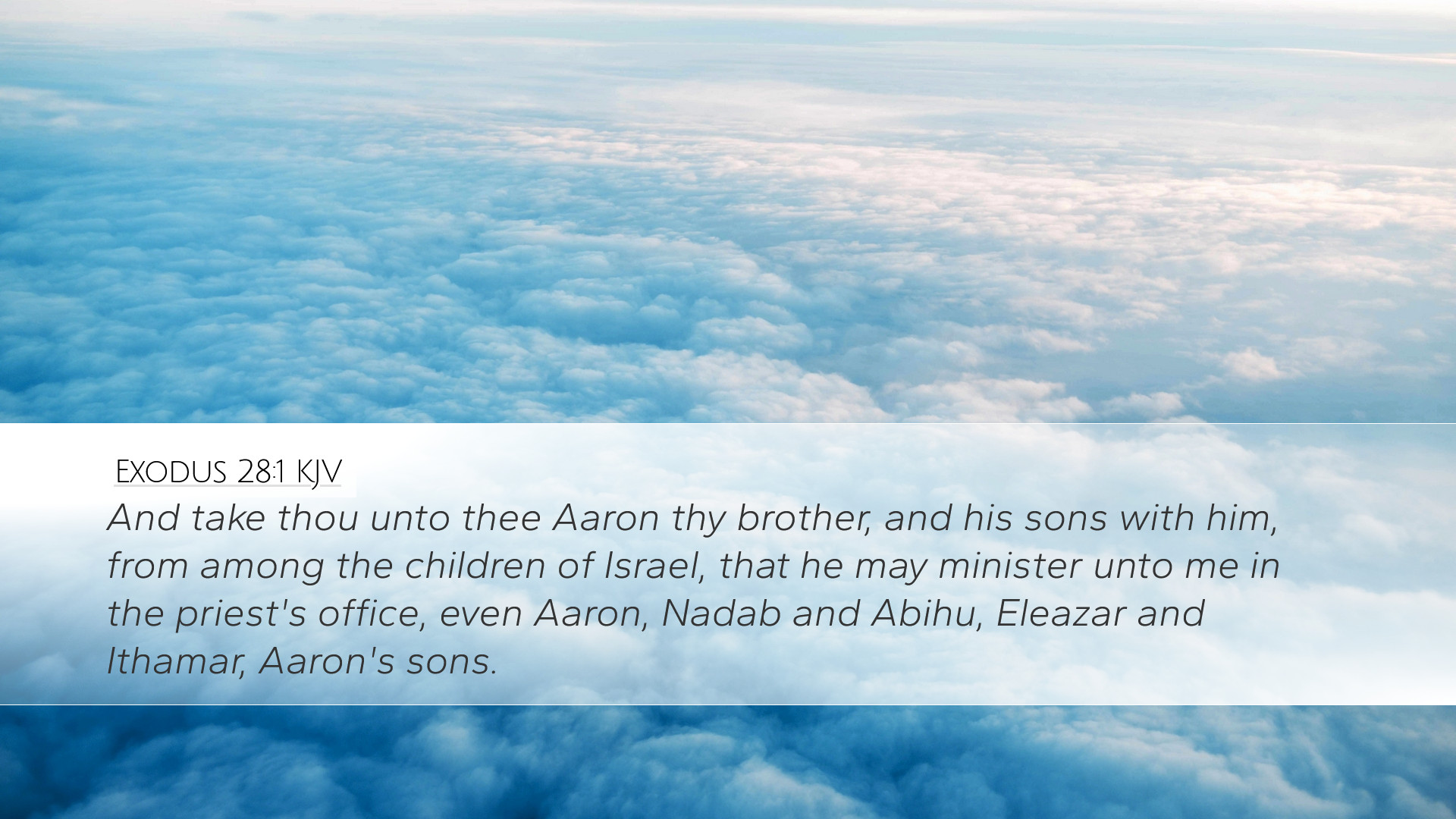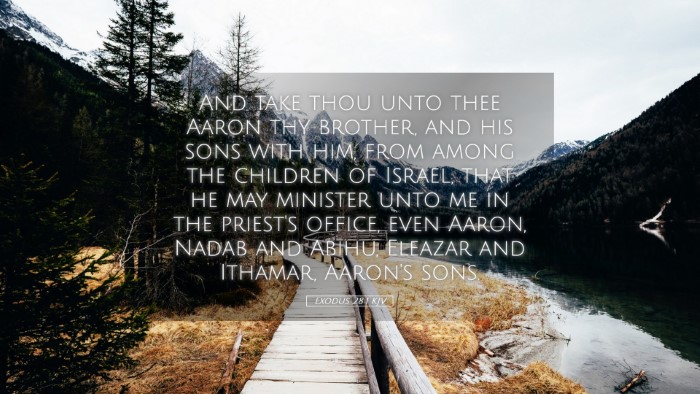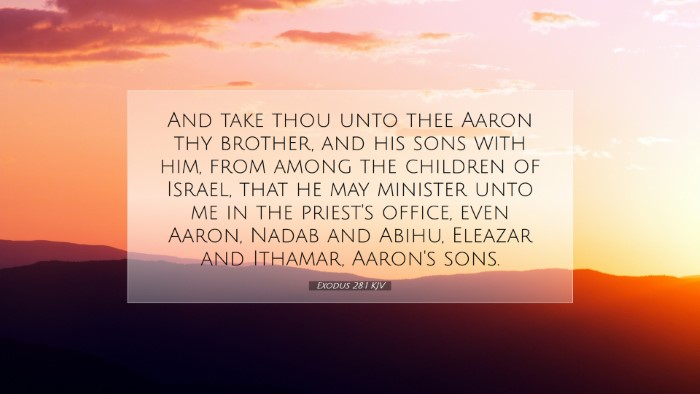Commentary on Exodus 28:1
Exodus 28:1 presents a pivotal moment in the establishment of the priestly office within the Israelite community. The verse reads: "And take thou unto thee Aaron thy brother, and his sons with him, from among the children of Israel, that he may minister unto me in the priest's office..." This directive from God to Moses not only outlines the appointment of priests but establishes a framework for divine worship and service.
Overview and Context
This command occurs during the Israelites' wanderings in the wilderness, after their deliverance from Egypt. It emphasizes the importance of a mediatorial role between God and His people. The priests, who descended from Aaron, the brother of Moses, were to serve a vital function in the spiritual life of Israel.
The Significance of Aaron’s Selection
As highlighted by Matthew Henry, Aaron’s appointment as High Priest symbolizes God's choice of a mediator. This role foreshadows the ultimate High Priest in Christ, who would mediate a new covenant. Henry points out the grace inherent in Aaron’s call, noting that it was not by his merit but through God's sovereign selection.
The Role of Aaron and His Sons
- Ministering unto God: The term “minister” suggests a service of worship and sacrifice. According to Albert Barnes, this was an honor as well as a heavy responsibility. The priests were required to uphold the sanctity of their office and perform their duties with reverence.
- Representing the People: The priests served as intermediaries, representing the people before God. Adam Clarke emphasizes that Aaron’s role included making atonement for the sins of the nation, underscoring the need for purification and reconciliation between humanity and the Holy God.
The Selection Process
The directive in Exodus 28:1 indicates a deliberate and divine selection process within the community. God chooses Aaron "from among the children of Israel," which highlights His authority over whom He appoints for sacred service. As Clarke articulates, selection by divine mandate fosters a sense of identity and purpose among the priests—it reminds them of their unique standing before God.
Theological Implications
This verse carries profound theological implications about leadership, representation, and holiness in the community of faith:
- Divine Authority in Leadership: God exercises sovereignty in appointing leaders. This principle remains vital for ecclesiastical governance today, as spiritual leaders are called to act under divine authority.
- The Necessity of Mediation: The mediation seen in Aaron’s selection points forward to Christ. The New Testament reaffirmation of Christ’s priesthood in Hebrews makes this link explicit, calling Him our eternal High Priest who intercedes for us (Hebrews 7:24-25).
- Holiness and Service: The qualifications and responsibilities of Aaron and his sons establishes a principle of holiness. The priests’ ritual purity signifies the call to holiness for all believers who serve in God’s kingdom.
The Role of The Priesthood Today
Modern interpretations, particularly in the context of the New Covenant, underline that while the specific Levitical priesthood served its purpose, all believers are now considered a "royal priesthood" (1 Peter 2:9). This democratization of priesthood is deeply significant. According to Henry, our call is to minister in various capacities, offering spiritual sacrifices and representing Christ to the world.
Conclusion
Exodus 28:1 serves as a cornerstone for understanding the priestly role in Scripture, and its reverberations are felt throughout the entirety of biblical theology. From the established norms of worship in the Old Testament to the culminating work of Christ in the New Testament, the themes present in this verse illuminate the sacred responsibility entrusted to God’s appointed leaders and the community of faith as a whole. It compels today’s pastors, theologians, and scholars to reflect on the holiness, honor, and ultimate significance of their calling in the light of divine instruction.


